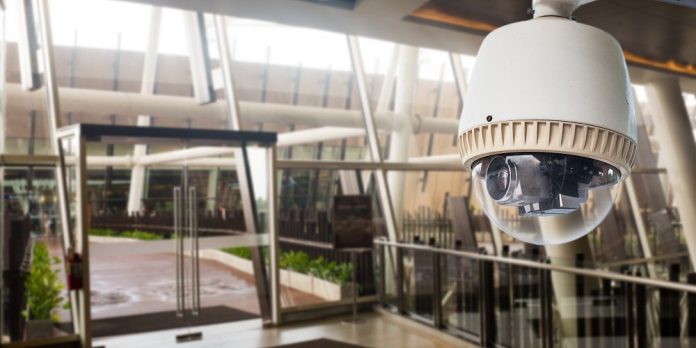
If you’re looking at getting a security system installed to protect your business, then know this: you’ve made the right choice.
Aussie businesses get burgled at night, and even in the daytime, unwanted intruders can cause a whole heap of trouble. The best way to protect your people and your assets is through installing a security system to control access points and monitor the comings and goings of your premises.
But even a relatively simple set-up requires preplanning—you can’t go buying a system without proper forethought and research. Here are seven things to consider before splashing out on a security system for your commercial business.
- Budget
Security systems range from a couple of hundred dollars to tens of thousands, so you need to think carefully about your business requirements first.
If you’re a small start-up company with a modest reception area and office space, you probably don’t need a state-of-the-art system with all the latest bells and whistles. On the other hand, a sophisticated enterprise with a high turnover and/or sensitive assets would be well advised to aim for the top of the range.
When working out your budget, don’t only consider how much you want to spend—you also need to factor in the value of the assets you’re protecting and the probability of them coming under threat.
- DIY or a professional install
If you’re opting for a simple security system with minimal components, a DIY job may well suffice. These days, wireless security systems can include monitors, cameras, access points, and other devices, all of which can be assembled by an amateur handyman with a basic set of tools.
More sophisticated systems, however, should be installed by a professional as these tend to be more difficult and dangerous to sort out. Wired systems require a licensed electrician to install, which will set you back a tidy sum. Decide whether you’ll aim for a DIY system or a pro install when formulating your budget.
- Access points
Access points are the cornerstone of every security system—set them up correctly and you’ll never have to worry about an unwanted intruder again. Take a moment to evaluate the blueprint of your building and discuss the most suitable access points with a trusted team member.
Next, you’ll need to determine how staff and visitors will gain access to the building. Popular options include passcards, pin codes, fingerprint scanners, and a security guard/receptionist who manually grants access, the latter only viable for high-volume business with big operating budgets.
Another option is to set up a camera by a buzzer, and have a staff member visually verify the visitor before buzzing them in, just like you’d see in a modern apartment block.
- Surveillance and storage
Capturing video footage is a superb way to deter thieves and can serve as vital evidence should a crime come to court. But the process adds complexity to your security system, so you must consider whether your business actually needs CCTV.
If you do decide it’s necessary to record footage on your premises, you need to figure out where you’ll store it. Basic security systems have a modest built-in hard drive that will retain footage for a set period, anything from a few days up to a few weeks. Because the storage space is finite, the system will automatically record over the top of old footage when it runs out of room.
More advanced and expensive systems will automatically upload footage for permant storage in the cloud.
- Monitoring
If you go down the path of recording and retaining video, then you also need to work out who is going to keep an eye on it all. You can set up most systems to send you an automatic alert should an unexpected event occur, such as movement inside your office or someone ringing on the front doorbell. And with remote access, you can see what’s happening in real-time through a live video feed.
However, if you’re unavailable at that time, you won’t be able to respond. Live monitoring plans have you pay a team of security professionals to monitor and respond to potential issues, 24/7.
- Wireless or wired
Most people agree wireless is the way to go these days as it’s cheaper, less fiddly, and easier to install. You can also move a wireless system around whenever you please and obtain remote access from anywhere in the world.
On the downside, the wireless alarm system doesn’t work well over a large area as the components have a limited range. You’ll also find they’re more prone to hacking and interference than their wired counterparts.
- Fire alarms
Intruders aren’t the only thing you need to worry about as the consequences of a fire can be catastrophic. Advanced security systems may incorporate fire, smoke or humidity detectors, which might provide sufficient time for your staff to escape in the event of an emergency. And that early warning could prove just enough to save someone’s life.
Installing a security system is a superb way to safeguard your assets, including your staff. Keep these seven tips in mind before settling on a system to ensure you find the perfect option for you.










